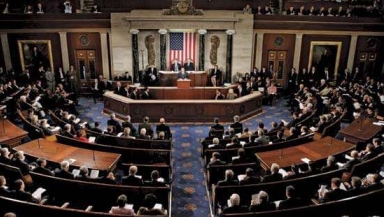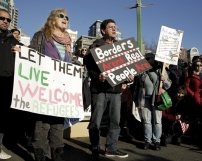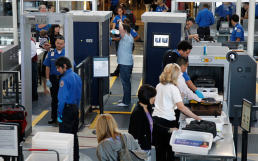
The U.S. House of Representatives has passed a bill that would tighten restrictions on travel to the United States by citizens from 38 countries under the Visa Waiver Programme.
The bill was overwhelmingly passed with a 407-19 vote, reports said.
The legislation will require visitors from visa waiver countries to get a U.S. visa if they had travelled to Syria, Iraq, Iran or Sudan in the last five years.
Countries in the programme are also required to share information with U.S. authorities about suspected terrorists.
"This legislation will help close gaping security gaps and improve our ability to stop dangerous individuals before they reach our shores," said Republican Rep. Michael McCaul, chairman of the House Homeland Security Committee.
The bill was passed following the San Bernardino, California terrorist attack that killed 14 people and injured 21 others.
Started in 1986, the Visa Waiver Programme was meant to boost tourism. About 20 million visitors every year enter the U.S. under the programme that allows them to stay for 90 days.
The bill is being opposed by the National Iranian American Council Action (NIAC Action), a sister organisation of the NIAC, saying it will restrict travel of Iranian Americans to Europe and Americans who have traveled to Iran.
It said it will bar people in Europe from traveling to the U.S. without a visa if they are Iranian dual nationals or have visited Iran since 2011.
Another bill passed by the House will impose stricter screening requirements on refugees from Syria and Iraq. President Barack Obama said he would veto it.
The U.S. Senate has not scheduled a vote on either legislation, and both could be included in a trillion-dollar spending bill that Congress must pass in the next few days to keep the government open.
The White House expressed its support to tighten the Visa Waiver Programme.
In his address Sunday, Obama proposed that "we should put in place stronger screening for those who come to America without a visa so that we can take a hard look at whether they've traveled to warzones. And we're working with members of both parties in Congress to do exactly that."















